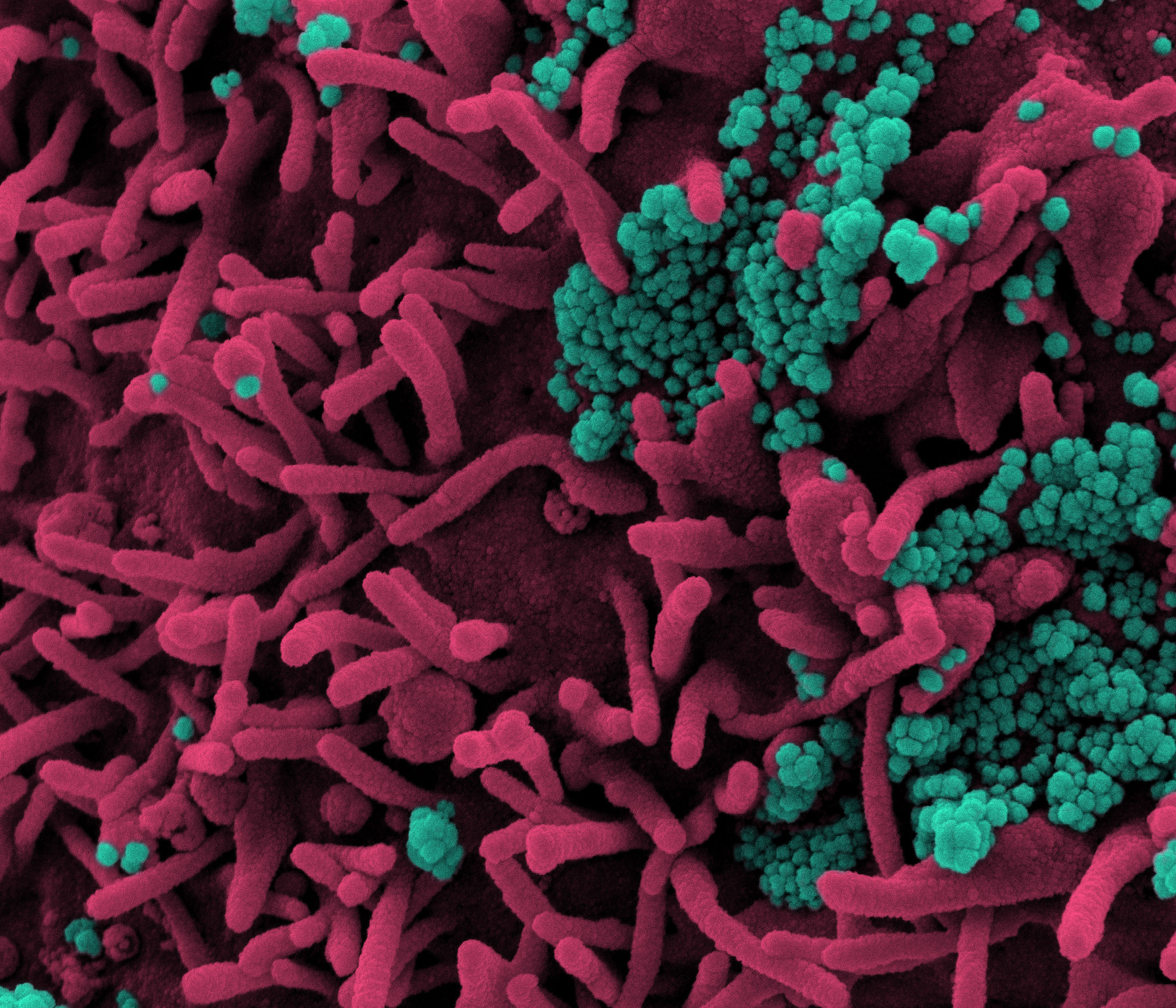
Press release
Tuesday, April 13, 2021
A clinical trial has begun to test the safety and efficacy of an investigational monoclonal antibody for treating hospitalized people with respiratory diseases and low blood oxygen due to infection with SARS-CoV-2, the virus that causes COVID-19. The Phase 2 process, called the COVID-19 Anti-CD14 Treatment Process (CaTT), is sponsored and funded by the National Institute of Allergy and Infectious Diseases (NIAID), part of the National Institutes of Health.
The laboratory-created monoclonal antibody, called IC14, binds to a human protein, CD14, which is found on the surface of immune cells circulating in the blood and airways and circulating as a stand-alone protein. CD14 helps immune cells recognize pathogens and injured or dying cells, alerting the immune system to the danger and causing it to respond.
Research suggests that during SARS-CoV-2 infection in the lungs, CD14 excessively amplifies the later stages of the immune response to the virus, potentially leading to an overactive inflammatory response and a “cytokine storm”. Cytokines, proteins secreted by immune cells, influence the immune response. A cytokine storm is a severe immune reaction in which the body rapidly releases numerous cytokines into the blood and tissues. In patients with COVID-19, a cytokine storm can cause dangerous levels of inflammation and tissue damage to the lungs, resulting in acute respiratory distress syndrome and respiratory failure.
“By blocking a protein called CD14 in the early stages of COVID-19 respiratory disease, the IC14 monoclonal antibody could temper the immune system’s harmful inflammatory responses to SARS-CoV-2, thus limiting tissue-related damage and improving patients’ health outcomes,” , Said NIAID Director Anthony S. Fauci, MD
The CaTT study will enroll between 300 and 350 COVID-19 hospitalized patients aged 18 years or older, from 10 to 15 locations nationwide. Volunteer participants will be randomly assigned to receive intravenous infusions with either IC14 or placebo for four days. Neither the participants nor the study team will know who receives the monoclonal antibody or placebo by the end of the trial. All participants will also receive intravenous infusions of the antiviral drug remdesivir for five consecutive days. The study team will follow the participants for 60 days. The results are expected in early 2022.
The main purpose of the CaTT study is to determine whether IC14 treatment decreases the time required for people with COVID-19 respiratory disease to recover so that they no longer need ongoing hospital care. Secondary objectives are to determine the safety of IC14 in the study population and the efficacy of the drug in reducing the severity of COVID-19 respiratory disease. If the results of the CaTT study are promising, then IC14 can be tested in a larger phase 3 efficacy study.
Leading the CaTT study are protocol co-chairs Mark M. Wurfel, MD, Ph.D., professor of medicine, and Thomas R. Martin, MD, professor emeritus of medicine, in the Division of Pulmonary Care, Critical Care and Sleep Medicine at the University of Washington in Seattle. The NIAID-funded immune tolerance network provides operational support for the trial, for which the coordination center is based at Vanderbilt University in Nashville, Tennessee. By default Bioscience Ltd. of Seattle and Brisbane, Australia will provide IC14 for the study, and Gilead Sciences, Inc. from Foster City, California will provide remdesivir.
An independent data and safety monitoring board (DSMB) will review the interim data from the study to ensure patient well-being and safety, as well as the integrity of the study.
Additional information about the CaTT study is available at ClinicalTrials.gov under study identifier NCT04391309.
NIAID conducts and supports research – at the NIH, throughout the United States and around the world – to study the causes of infectious and immune-mediated diseases and to develop better means of preventing, diagnosing and treating these diseases. Press releases, fact sheets and other materials related to NIAID are available on the NIAID website.
About the National Institutes of Health (NIH):
NIH, the national medical research agency, includes 27 institutes and centers and is a component of the US Department of Health and Human Services. NIH is the leading federal agency that conducts and supports basic, clinical, and translational medical research and investigates the causes, treatments, and cures of both common and rare diseases. For more information about NIH and its programs, visit www.nih.gov.
NIH … Transforming discovery into health®